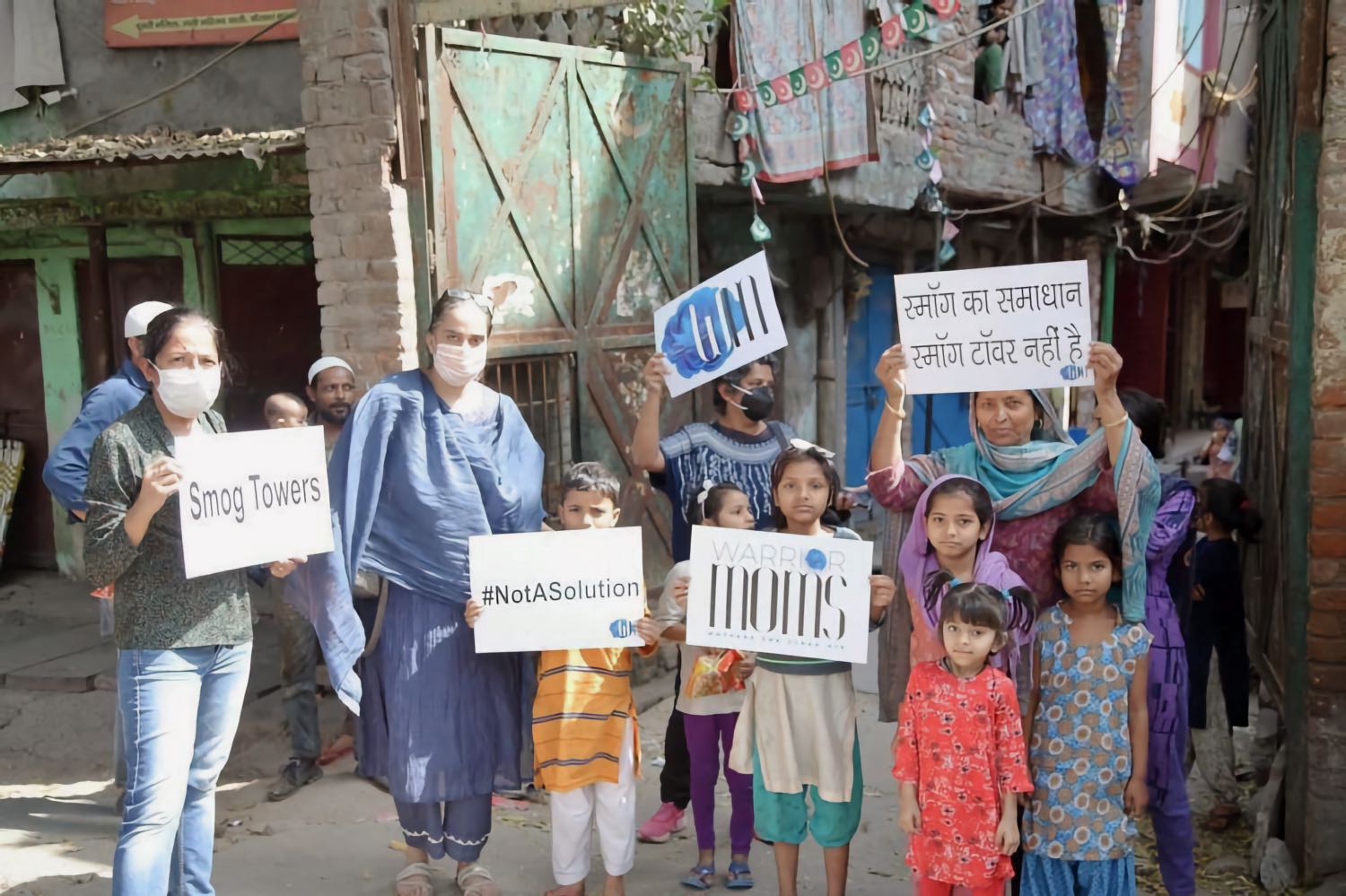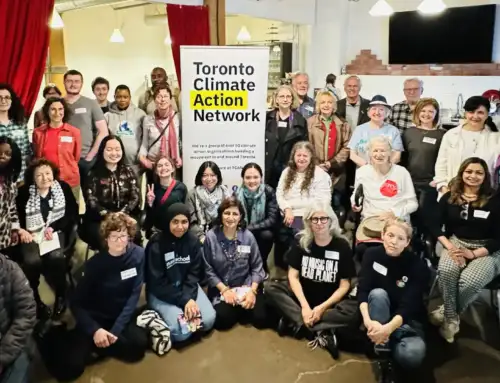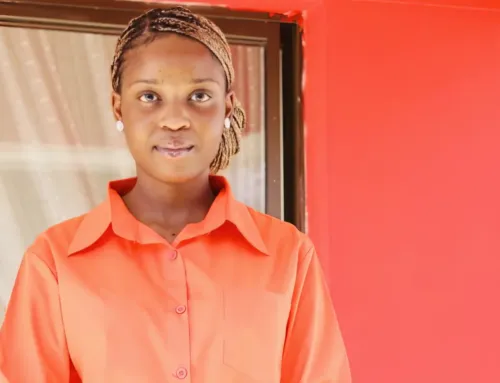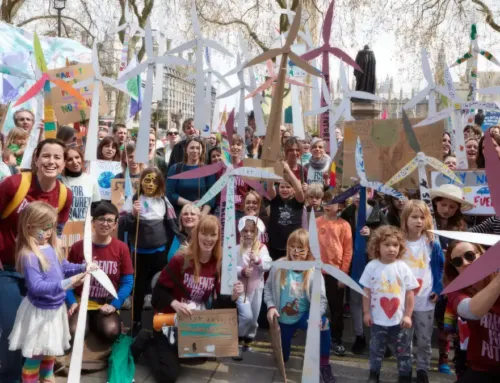STORIES
Every third child in Delhi has damaged lungs
A conversation with Bhavreen Kandhari
The global climate parent movement is about building connections between parents working on climate change across the world. We learn from and support each other. So, in the run up to COP27, Mary De Mocker, a climate activist and author, from Oregon in the USA, spoke to Bhavreen Kandhari, the co-founder of Warrior Moms in India, which brings mothers together to demand clean air.
Bhavreen is part of the Our Kids Climate and Parents for Future Global delegation of mothers at COP27. She was also part of our delegation at COP26. Bhavreen’s advocacy began after her twin daughters, born in 2003, struggled with chronic health issues caused by Delhi’s toxic air. Mary and Bhavreen spoke from time zones 12.5 hours apart about the situation in India and how Bhavreen is taking the fight for clean air to COP27.
Mary: You champion clean air for all children in India, and at COP27 you’ll demand a phase out of fossil fuels. How do fossil fuels impact children’s health?
Bhavreen: Experts have shown how fossil fuels are responsible for the disastrous, toxic air that comes into our bodies in every way. Every third child in Delhi has damaged lungs from air that’s polluted by burning fossil fuels. Researchers have even found Particulate Matter 2.5 (inhalable, microscopic droplets that can cause serious health problems) in the lungs and the liver and the heart of fetuses. How does that feel to hear? In Delhi, every child is a smoker as soon as they’re born. Now, we know the fetus is a smoker, too. My children will probably live ten years less than your children, Mary. How does that feel?
Mary: Terrible. I didn’t know this.
Bhavreen: Why shouldn’t I be prosecuting my health ministry and my government for stealing ten years of my children’s lives? Why should any mother refrain from doing that? Politicians are not working on the sources of pollution. They make big, visual changes, a smog tower or one spraying cooling mist, the visuals people understand so they give you votes. The politicians work on this kind of nonsense instead of on the sources. Our biggest is, of course, the burning of coal.
Mary: Why is it important that children are at the heart of COP27 discussions?
Bhavreen: We are all here for children. Everyone is a parent or could be one day or has a niece, nephew in their family. What’s the most important thing to a parent? To keep your child safe and healthy and give them a good future. How does that happen if we create this climate and pollution crisis?
I don’t think there’s a parent in the world who would say “I don’t want my child to be healthy.” When it comes to action, I’ll do whatever it takes, but politicians and industries don’t because they have their own agendas. Why don’t our politicians feel that the children in our capital city, the most polluted in the world, are also their children?
Mary: What are some other climate impacts you see harming children in India?
Bhavreen: We just had terrible rains for five or six days straight. It never rains at this time, and so crops were devastated. This kind of climate-driven disaster may impact people like me in cities with higher prices, but every farmer’s child will probably starve this year because their crops are gone. Their lives will probably never be the same.
And summer was so bad in India with the heat waves. Many people live in slums with only a cardboard box to sleep in. Can you imagine how suffocating that must be for a child in 53-degree Celsius (127.4 Fahrenheit) heat?
And there’s a huge impact on school children. First, schools shut down for Covid. Then schools shut down for extreme heat. Then schools shut down for toxic air. Imagine the life kids have now! And droughts, floods, heat waves, and famines will only get worse, harming children most of all. Especially in the Global South.
Mary: You’re going to Egypt with a delegation of mothers. What do you think the parent voice can bring to COP27 on the climate issue?
Bhavreen: I just cannot believe that anyone with a child won’t prioritize their child’s health. As a parent, I’ll jump if any child needs me. I think most other parents will, too.
We mothers are saying Okay, we’ve all made mistakes, we’re all responsible for protecting children. So let’s all claim responsibility and then act quickly to end fossil fuels. But the action from leaders is missing. We need action more than words at COP27.
Mary: How would you ask world leaders to put children first at COP27?
Bhavreen: I’d tell them, “Close your eyes. Think about your own children. Just think about them. Then think about that study that found PM2.5 pollution found in all fetuses’ lungs, livers, and brains. Ask yourself, ‘Was my wife pregnant when that study was done, or maybe after that, when the air was just as polluted?’” COP27 leaders, just close your eyes and think, “How many cigarettes is my child smoking today?”
Mary: I’ve heard you coughing a lot in this interview. I’m coughing, too, because the Western US has been on fire for months and the smoke just sits in our valley.
Bhavreen: We’re struggling with such different contexts. I had no idea you were so near those wildfires.
Mary: But it has helped me understand what you face. Since learning about you, I’ve started checking your air quality often. We’re suffering now from wildfire smoke, but you struggle with toxic air year-round.
Bhavreen: It’s terrible. We’ve had so many fires in India this year, too. We’ve had only five good air days in Delhi this year. We are living in this hell.
Mary: How do you keep yourself hopeful and emotionally balanced when working year after year on such complex global problems?
Bhavreen: It’s day to day. Some days I’m so disappointed, like when our court case goes badly, they’re saying all the wrong things, and everything’s going wrong. But then some bright spot comes and I feel so good, and get back to action and say, “Maybe we can do this.”
And so many of us are really thankful for this global support. That really helps. When I meet other mothers in our network, I see that these battles have been very lonely for everyone. But coming together like this is very, very heartening.
Mary: Thank you, Bhavreen, it’s been such an honor to speak with you. May your voice be heard and heeded by world leaders. May they truly put kids first.




